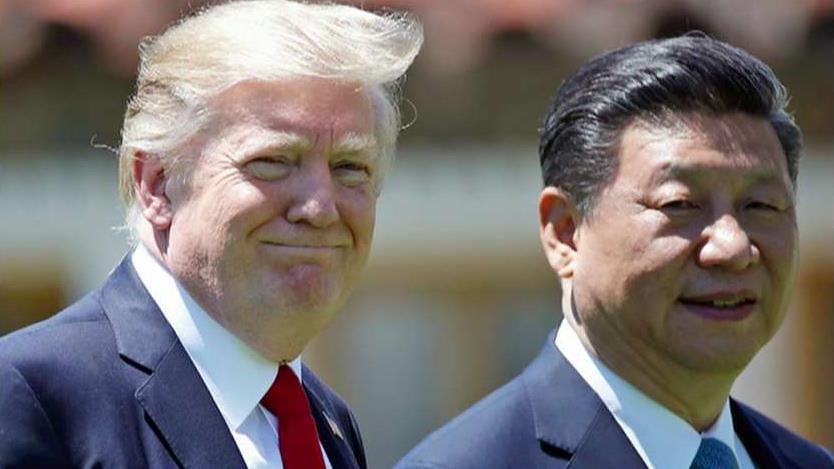Trump-Xi G-20 summit: Common sense vs. tariffs and what's at stake
When President Donald Trump and Chinese President Xi Jinping meet at this week’s G-20 summit in Japan, the Trump administration could largely be writing its history as it decides which turn to take on trade: settle the U.S. economy, especially our burgeoning energy sector, by striking a fair deal with China or wade deeper into an indefinite and costly trade war.
There can be no doubt that financial markets prefer the first path, but the pressure remains high for the president to stand tough on China. After all, with China’s misbehavior on trade being a prominent theme of the president’s foreign policy platform, he’s not likely to change his tune.
Maybe the Trump administration will take the overwhelmingly adverse response from America’s business communities to heart as it pursues its China trade policy.
Every move America makes on this front will be critical considering the stakes. The U.S. economy is thriving. It registered a healthy 3.2 percent growth in the first quarter and we are seeing the lowest unemployment numbers since 1969, propelled in part by the president’s landmark tax cuts. That momentum could quickly evaporate if the administration continues the plunge into an indefinite trade war with China.
Energy sector: What's at stake
The stakes for the U.S. energy sector and for the president’s vision of American energy dominance, though, are even higher. That’s because a healthy energy trade with China is fundamental to the resurgence of the U.S. economy. We simply can’t establish a pre-eminent economic position globally if our energy trade with China is broken.
It’s no secret that the U.S. oil and natural gas industry has boomed in recent years, fueling the economy and increasing our energy security. The U.S. is now poised to become a net energy exporter for the first time since 1953, with China a leading contributor to that energy demand. China’s massive appetite for oil and gas is good news for the U.S., which has those commodities in spades.
But last year, after the administration imposed tariffs on $200 billion of Chinese imports, the high-speed U.S. energy trade with China ground to a screeching halt. China predictably retaliated with tariffs on liquefied natural gas (LNG), hitting the U.S. where it hurt. Those LNG tariffs, effective June 1st, dropped U.S. cargoes of LNG to China to just seven from September 2018 to April 2019, compared to 37 cargoes in the same eight-month period the year prior. Before last year’s tariffs, China was the third biggest customer of American LNG. Today, it’s barely in the top twenty.
There’s more pain to come for LNG if the U.S. ramps up new tariffs. For, example, China could turn to the Russians for LNG supplies, a move foreshadowed already by state-owned China National Petroleum Corp. and China National Offshore Oil Corp agreeing to buy 10 percent stakes in Russian Novatek's massive Arctic LNG 2 project.
China’s withdrawal from the U.S. on LNG will also have a profound effect on export projects targeted solely at the fast-growing Asian market. With the specter of a long trade war looming, Chinese partners will hesitate to sign long-term delivery contracts with U.S. suppliers, meaning banks and other investors will likewise be hesitant to provide the billions in financing necessary to build new LNG export facilities. This ripple effect is crucial, as China is a major player in sponsoring new LNG projects worldwide. The six LNG projects now under construction in the U.S. and the two dozen others in development are intensely focused on the Asian market. If China looks elsewhere for LNG, including Russia, these projects are likely dead in the water.
CLICK HERE TO GET THE FOX BUSINESS APP
There is much on the line as the president deals with China, but more tariffs aren’t the answer. With the 2020 election looming and important milestones on U.S.-China trade forthcoming, the president must make a decision. Endanger America’s economic future by doubling down on tariffs or protect the U.S. economy and move boldly toward energy dominance with a common sense trade deal.
Dan K. Eberhart is CEO of Canary, an independent oilfield services company in the United States, and a frequent commentator on oil markets and U.S. politics.




















